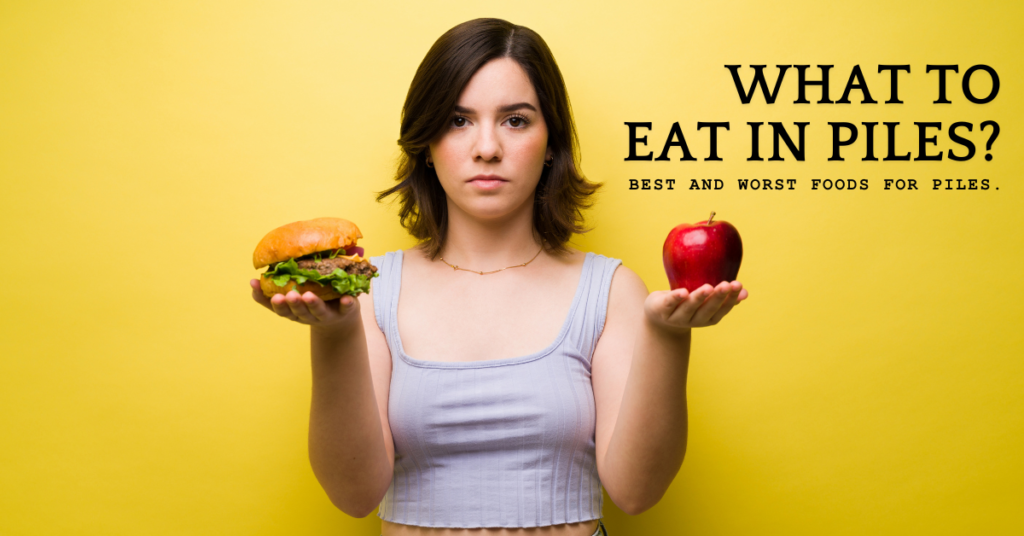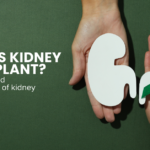
What to Eat in Piles: Best and Worst Foods for Piles
Piles, also known as hemorrhoids, are swollen veins in the lower part of your rectum and anus. They can be painful, itchy, and uncomfortable. One of the key ways to manage and prevent piles is through your diet. What you eat can make a big difference in your symptoms and overall comfort. This blog will guide you through the best and worst foods for piles, helping you to make informed choices for your health.
Understanding Piles
Before we dive into the best and worst foods for piles, let’s understand what causes them. Piles can be caused by various factors, including:
- Straining during bowel movements
- Chronic constipation or diarrhea
- Sitting for long periods, especially on the toilet
- Obesity
- Pregnancy
- Low-fiber diet
These factors put pressure on the veins in your rectum and anus, causing them to swell and form piles. By adjusting your diet, you can ease this pressure and improve your symptoms.
Best Foods for Piles
1. High-Fiber Foods
Fiber is crucial for preventing constipation and making your stool softer and easier to pass. This reduces the strain on your rectal veins. Here are some fiber-rich foods to include in your diet:
- Whole Grains: Foods like brown rice, whole wheat bread, oatmeal, and quinoa are excellent sources of fiber.
- Fruits: Apples, pears, berries, and bananas are great choices. Eating the skin of fruits like apples and pears adds extra fiber.
- Vegetables: Broccoli, carrots, Brussels sprouts, and leafy greens like spinach and kale are packed with fiber.
- Legumes: Beans, lentils, chickpeas, and peas are not only high in fiber but also provide protein.
2. Hydrating Foods
Staying hydrated is vital for softening your stool and making it easier to pass. Drinking plenty of water is essential, but you can also include hydrating foods in your diet:
- Cucumbers and Celery: These vegetables have high water content and are refreshing snacks.
- Watermelon and Cantaloupe: These fruits are delicious and help keep you hydrated.
- Soups and Broths: Clear soups and broths are hydrating and easy to digest.
3. Foods Rich in Flavonoids
Flavonoids are compounds found in certain fruits and vegetables that can help reduce the swelling and bleeding associated with piles. Foods rich in flavonoids include:
- Citrus Fruits: Oranges, lemons, and grapefruits are excellent sources.
- Berries: Blueberries, strawberries, and blackberries are packed with flavonoids.
- Onions and Garlic: These add flavor to your dishes and offer health benefits.
4. Probiotic Foods
Probiotics are good bacteria that help keep your digestive system healthy. They can improve your gut health and prevent constipation. Probiotic-rich foods include:
- Yogurt: Choose plain, unsweetened yogurt with live cultures.
- Kefir: This fermented milk drink is rich in probiotics.
- Sauerkraut and Kimchi: These fermented vegetables are great sources of probiotics.
5. Healthy Fats
Healthy fats can help keep your digestive system moving smoothly. They can also reduce inflammation in your body. Include these healthy fats in your diet:
- Avocados: These are high in healthy fats and fiber.
- Nuts and Seeds: Almonds, walnuts, chia seeds, and flaxseeds are excellent choices.
- Olive Oil: Use this as a dressing for salads or for cooking.
Worst Foods for Piles
Just as there are foods that can help manage piles, there are foods that can make your symptoms worse. Here are some foods to avoid if you have piles:
1. Low-Fiber Foods
Foods low in fiber can lead to constipation and straining during bowel movements, which can worsen piles. Avoid these low-fiber foods:
- Processed Foods: White bread, white rice, and other refined grains.
- Fast Food: Burgers, fries, and other fast-food items are typically low in fiber.
- Pastries and Sweets: Cakes, cookies, and other sugary treats.
2. Spicy Foods
Spicy foods can irritate your digestive system and worsen the symptoms of piles. It’s best to avoid:
- Hot Peppers: Foods made with hot peppers or hot sauces.
- Spicy Curries: While flavorful, they can be hard on your digestive system.
3. Caffeinated Beverages
Caffeine can lead to dehydration, which can make constipation worse. Limit your intake of:
- Coffee: Try to reduce your coffee consumption.
- Tea and Soda: These beverages also contain caffeine.
4. Alcohol
Alcohol can dehydrate your body and lead to constipation. It’s best to avoid or limit alcohol consumption if you have piles.
5. Red Meat
Red meat is hard to digest and can slow down your digestive system, leading to constipation. Try to limit your intake of:
- Beef: Opt for leaner meats like chicken or fish instead.
- Pork: Choose plant-based protein sources when possible.
6. Dairy Products
For some people, dairy can lead to constipation and digestive issues. If you notice that dairy worsens your symptoms, try to reduce your intake of:
- Milk: Consider plant-based milk alternatives like almond or oat milk.
- Cheese: Try to limit cheese consumption, especially hard cheeses.
Additional Tips for Managing Piles
1. Drink Plenty of Water
Staying hydrated is essential for preventing constipation. Aim to drink at least 8 glasses of water a day. This will help keep your stool soft and easy to pass.
2. Exercise Regularly
Regular physical activity can help keep your digestive system moving. Aim for at least 30 minutes of moderate exercise most days of the week.
3. Avoid Straining During Bowel Movements
Straining can put extra pressure on your rectal veins. When you feel the urge to go, try to relax and take your time. Avoid sitting on the toilet for too long.
4. Use a Stool Softener
If you’re struggling with constipation, a stool softener can help. Talk to your doctor about the best options for you.
5. Practice Good Hygiene
Keeping the anal area clean can help prevent irritation and infection. Use gentle, unscented wipes or warm water after bowel movements.
Managing piles can be challenging, but making the right dietary choices can make a significant difference. By including high-fiber foods, staying hydrated, and avoiding irritants like spicy foods and caffeine, you can ease your symptoms and improve your quality of life. Remember, it’s not just about what you eat, but also how you care for your body. Regular exercise, good hygiene, and avoiding straining during bowel movements are all essential steps in managing piles effectively.
Always consult with a healthcare professional before making significant changes to your diet or lifestyle, especially if you have any underlying health conditions. With the right approach, you can take control of your symptoms and live more comfortably.



